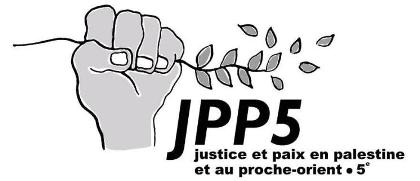In 2015, Taiz, a coastal governorate in southwest Yemen, known for its fertile valleys, was placed under siege as fighting escalated between rival groups. Supply routes were blocked and residents of Taiz took the brunt of the conflict. By March 2017, around 350,000 people were still in need of urgent medical aid.
For Bushra*, a Taiz resident who moved to Doha last year, Taiz will always be a city of generous people.The thirty-nine-year-old housewife muses that despite their dire economic conditions, the people of Taiz will always find something to give to others. Here, she recalls Ramadan in the city of her childhood.
READ MORE: Ramadan in Yemen - Fasting by day, starving by night
I lived in Taiz during the siege. We could not even find wheat to cook. All we had was tea and bread, but that was not the worst part. How can I describe the fear? It encompassed every one of us. It would take hold every time a missile flew over the house. It is a fear that settles in your bones, and stays with you long after the sound of strikes has ceased.
During Ramadan, giving and sharing food is extremely important. Even the poor share some of their food with their neighbours. |
Yemen is a country of simple folk, and Ramadan was a time for coming together. We were filled with joy and excitement rather than fear during the holy month. The night before Ramadan, everyone flocks outside for last minute preparations. Noises, mainly delighted chatter, fill the alleyways.
The women prepare food like sambusas (fried stuffed dough), so it is ready to fry the next day. Excited children filter through the streets to play games, and young men mill about, because no one sleeps during Ramadan nights in Yemen.
We wake up around thuhr (mid-day prayers) and start to prepare for iftar. We make luhuh, a thin crepe like bread that is then eaten with meat, pepper and laban (yoghurt). Other dishes that are necessary for Ramadan include makaskas, little pieces of bread with a mix of raisins and nuts, and shafoot, a dish of yoghurt with thyme that is eaten with bread.
Yemen's cities are built so that everything one may need is always within a walking distance. So, right around iftar (breaking of the fast), everything turns hectic. People run around trying to buy last minute groceries or send their kids to check if the neighbour has sambusas, because there's not enough time to make some.
That's why you can feel Ramadan all around you in Yemen. The streets are constantly filled and buzzing with energy.
Iftar preparations must be done a half hour before athan al-maghrib (sunset call to prayer, which also indicates that it is time to break your fast), so the family can settle down and start making dua (prayers). Then the bukhur (incense) is lit by the lady of the house.
If a relative is visiting from another country, the extended family gets together. Cousins, aunts and uncles stream in with piping hot plates. A cloth is placed on the floor and the food is laid out, while everyone gathers around.
Traditionally, there is a variety of small samplings from each dish, so there isn't excess food that goes to waste. Smaller dishes are also easier to share.
During Ramadan, giving and sharing food is extremely important. Even the poor share some of their food with their neighbours, and it is imperative for the family to invite people throughout the month.
Of course, now, almost everyone is struggling to make ends meet. Most employees haven't received salaries for eight months, but Yemenis are a resilient people. We have spirit, so we will make it through.
A decade ago, when we first left Yemen, we went to Iraq. In an effort to preserve our Yemeni traditions, my husband would go out and bring every single Yemeni man he could find. We would feed over 20 men at once - men who were homesick for real Yemeni food and our country's Ramadan spirit.
After iftar, people would flood the streets, marking the beginning of semar (nightly hangouts). Some of the men head to majalis (gathering spaces usually adjacent to the main house). The men stay up until fajr (dawn prayers), make wudu (ablution) and head to the mosque to pray, preparing for another day of fasting.
The women visit each other's homes. Each one brings a plate of sweets and the host brings out different types of drinks, such as milk, tea and tamarind juice.
They sit around a low settee called althaght. The sweets are passed around amid discussions about life, Eid, children. In the past few years, politics and war dominated our conversations. Most women would try to sift real information from rumours.
The night before Eid, the excitement becomes apparent. I remember as a child, we had our Eid outfits already picked out and laid out on the bed, eager to wear them the next day.
READ MORE: How the war changed Ramadan in Baghdad
The new clothes for Eid are seen as a way to bring blessing into your year.
We still carry those traditions. My husband insists that the whole family don new clothes for Eid. It's an absolute must. No one in our family can leave the house on Eid day in old clothes.
When I was growing up, we would go to Aden on the second day of Eid. My mother, sisters and I rented a house by the water. I remember walking down Aden's boardwalk. Affluent Yemenis in their Eid finery bustled about, and sweet sellers lined the streets.
It is easy to forget that Yemen was once a place of joy and spirit, with the constant news of death, famine and cholera. But there's still hope for Yemen.
*Bushra's last name was not included since her family still lives in Taiz.
Source: Al Jazeera
http://www.aljazeera.com/














